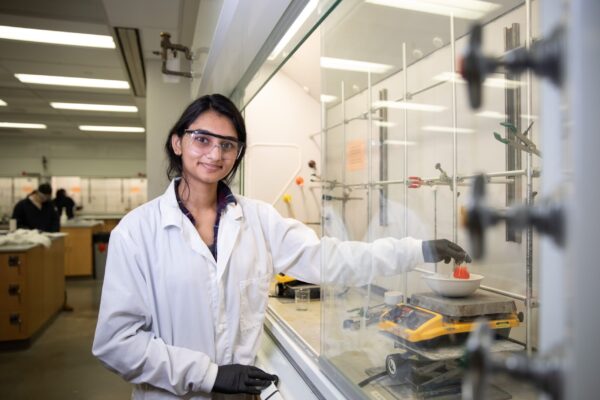AUSTIN, Texas — From developing vaccines and treatments for deadly diseases to advancing technologies that protect our nation to making discoveries about ancient cultures, the research that’s conducted at The University of Texas at Austin saves lives and changes the way we see the world. To carry out this transformational research, UT research teams rely on funding from a variety of sources to help pay for lab space, equipment, graduate student stipends and other costs associated with research.
For the first time, annual research expenditures at the University have exceeded $1 billion, an indication that research activity is higher than ever on the Forty Acres. According to data recently submitted to the Higher Education Research and Development Survey, the research community across campus conducted $1.06 billion in research during fiscal year 2023. The billion-plus dollars in expenditures represents more than 4,000 research projects that span every college and school at UT. It also represents a substantial jump — 25% — in research activity compared with fiscal year 2022.
“Surpassing the $1 billion mark sends a strong signal that UT is one of the world’s top research institutions. More importantly, these expenditures are actually investments we are making to change the world,” said President Jay Hartzell. “These investments by the University — perhaps most notably in the dynamic fields of energy, life sciences, artificial intelligence and robotics — will produce returns for society, improve and save lives, and help us see or experience the world in different ways. These efforts are fueled by our ability to recruit exceptional talent, our commitment to world-class facilities, and our strong relationships with government and industry partners. I could not be prouder of our faculty’s commitment to change the world or more optimistic about the impact we will continue to have.”
Much of the growth in research activity is being funded by grants awarded to researchers by federal agencies. For example:
- The Texas Advanced Computing Center used funding from the National Science Foundation to support its transition to Stampede3, a powerful new supercomputer that will advance high-performance computing in the age of AI and machine learning. TACC is also home to Frontera, the most powerful supercomputer at a U.S. university.
- A grant from the Department of Energy funded a mission to collect core samples of methane hydrate beneath the seafloor of the Gulf of Mexico. The expedition, led by Peter Flemings at the Jackson School of Geosciences, hopes to answer questions about how the energy-dense methane hydrate will react in a changing climate and whether it could one day be used as an energy source.
- Chandra Muller, a sociologist in the College of Liberal Arts, is leading a major study funded by the National Institutes of Health to better inform interventions — including educational policies — that could improve cognitive function for those diagnosed with Alzheimer’s disease and other forms of dementia.
- The Cockrell School of Engineering and College of Natural Sciences are developing a new class of materials to make next-generation technologies possible — including a window coating that can block light or allow light in depending on a building’s heating and cooling needs. Thanks to funding from the National Science Foundation’s Materials Research Science and Engineering Centers program, UT is rapidly advancing materials research.
“It can take years for research discoveries made in an academic setting to have real-world impact,” said Dan Jaffe, vice president for research. “At UT, our research teams have shown tremendous success in securing funding and delivering breakthroughs that are benefitting Texas, the nation and the world.”
Sponsored by the National Science Foundation, the HERD Survey is the primary source of information on research and development expenditures at U.S. colleges and universities. Rankings of universities based on research expenditures are expected to be released in late fall.




